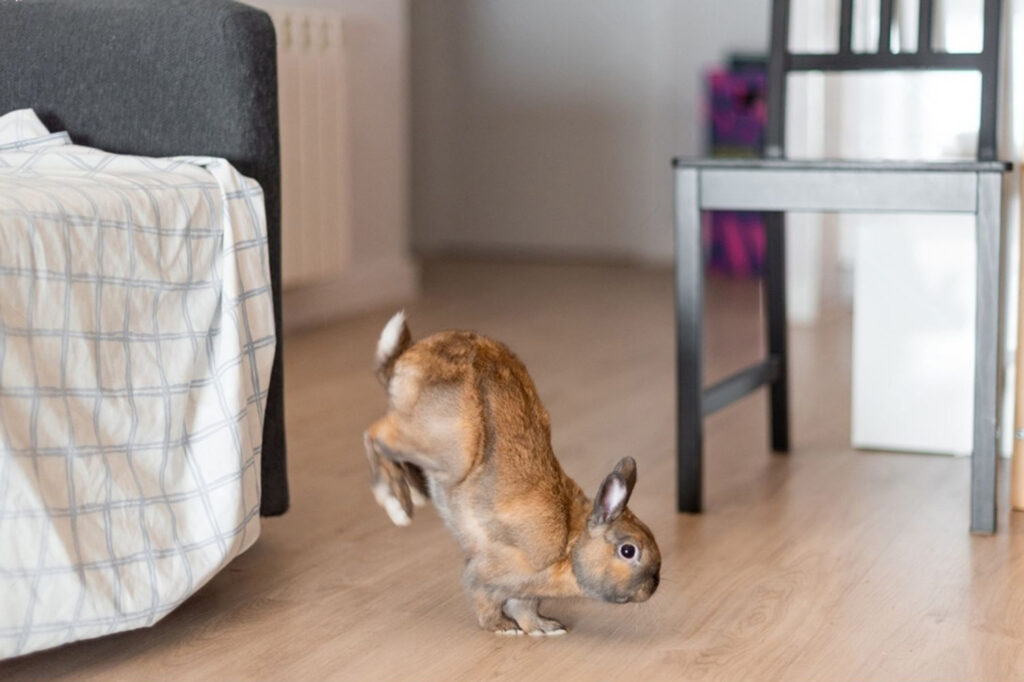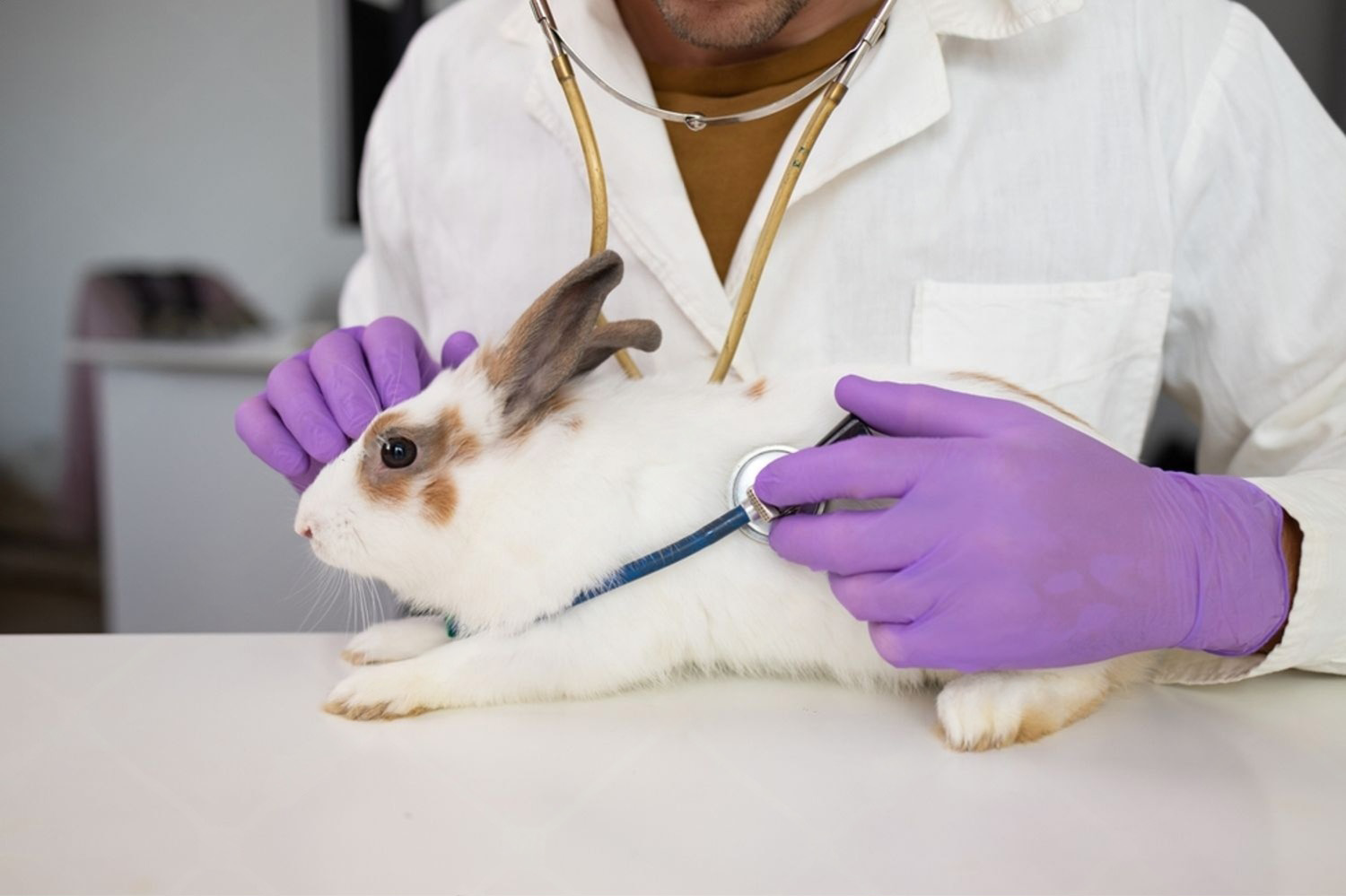If you’ve ever been relaxing when suddenly—THUMP!—your rabbit slams its back feet against the floor, you’re not alone. Many bunny owners experience this surprising (and sometimes startling) moment when their pet rabbit thumps out of nowhere. This behavior is loud, intentional, and deeply meaningful. But if you’ve ever wondered why your rabbit is thumping, what they’re trying to say, or why my rabbit keeps thumping even when nothing appears wrong, this guide will give you the clarity you need.
At PetRabbitSupplies.com, we know that understanding rabbit body language is key to building trust and emotional connection with your furry friend. Thumping is one of the clearest ways rabbits communicate—not just with other rabbits, but with you. And once you learn to interpret it, you’ll understand your bunny better than ever.
This in-depth article explains everything behind rabbit thumping: the meaning, the causes, and how to respond when it happens. Let’s decode the mystery behind those powerful back-foot messages.
What Exactly Is Rabbit Thumping?
Thumping (also called stomping) happens when your rabbit forcefully strikes its hind legs against the ground. The sound is sharp, loud, and unmistakable. It might occur once, or your rabbit won’t stop thumping and keeps repeating the behavior until they feel safe again.
In the wild, rabbits thump to warn the colony of danger. This instinct is still strong in domestic rabbits, even when living indoors. That’s why rabbit stomping at night is so common—they’re active at dusk and dawn, and their survival instincts are heightened during dark, quiet hours.
Thumping is not random. It’s a message. And your rabbit wants you to pay attention.
Why Your Rabbit Is Thumping: The Most Common Reasons
Every bunny thumps for a reason, though it’s not always obvious to humans. Here are the key causes behind this expressive behavior.
1. Fear: The Biggest Trigger of Rabbit Thumping
Fear is the #1 reason pet rabbits thump, and because rabbits are prey animals, even small or subtle changes can feel threatening.
Common fear triggers include:
- Loud indoor noises (vacuum, blender, TV volume spikes)
- Outside noises (sirens, fireworks, thunder)
- Strange scents
- Shadows or sudden movements
- New people or unfamiliar voices
- Other pets getting too close
When your bunny senses danger—real or imagined—they thump to alert you and any nearby “colony members.” It’s instinctual, automatic, and deeply ingrained.
If my rabbit keeps thumping whenever a noise happens, fear is usually the reason.
2. Annoyance or Frustration
Rabbits have big personalities, and sometimes a thump means:
“I’m mad.”
or
“You annoyed me.”
Rabbits may thump when:
- You stop petting them sooner than they wanted
- You pick them up when they don’t want to be held
- You block their favorite room
- You move their toys or rearrange their habitat
- You change their routine
This is “attitude thumping,” and it often comes with head turns, flicked feet, or dramatic hopping away.
3. Attention Seeking
Some rabbits learn that thumping gets your attention fast—and they use it on purpose.
If your rabbit stomping for no reason happens mostly when you leave the room, ignore them for too long, or delay their feeding time, it may actually be intentional communication.
Your rabbit is saying:
“Hey! Notice me!”
4. Stress, Discomfort, or Pain
If your rabbit won’t stop thumping, especially without an obvious trigger, discomfort may be the cause.
Possible stressors include:
- Digestive upset
- Temperature changes
- Feeling trapped or overcrowded
- Dislike of new bedding or scents
- Difficulty adjusting after a recent move
Rabbits hide pain extremely well, so thumping may be one of the few outward signs something is wrong.
5. Protecting Territory or Warning Others
In multi-rabbit households, thumping can communicate dominance, frustration, or territorial boundaries.
A rabbit may thump to warn another bunny:
“Stay back.”
or
“I sensed something—stay alert.”
Even in solo-bunny homes, thumping may occur if your rabbit feels their space is being invaded.
Why Your Rabbit Is Stomping at Night
One of the most common concerns rabbit owners have is:
“Why is my rabbit stomping at night?”
There are three main reasons:
1. Increased alertness during nighttime hours
Rabbits are crepuscular—they’re most active at dusk and dawn, when they are naturally more cautious and alert.
2. Nighttime noises
Your rabbit may hear things you don’t:
- distant traffic
- wildlife outside
- HVAC systems
- refrigerators kicking on
- birds
-
wind or tapping branches
These subtle sounds can easily spark a thumping episode.
3. Feeling alone or vulnerable
If your rabbit is separated from you, their bonded partner, or their usual comfort space, nighttime anxiety can increase.
What to Do When Your Rabbit Is Thumping
Your rabbit isn’t trying to be difficult. They’re trying to communicate. Here’s how to respond.
1. Check for Danger or Triggers
Look around immediately when thumping starts:
- Did something fall?
- Did a shadow move?
- Is there a strange noise?
- Did another pet enter the room?
Eliminating the trigger often stops the thumping.
2. Reassure Your Rabbit Calmly
Approach slowly. Sit near them, speak softly, and let them come to you.
Don’t force cuddles—give them the choice.
A calm rabbit will often relax with gentle forehead strokes.
3. Offer a Safe Hideout
Rabbits feel safest when they have:
- covered hideaways
- tunnels
- dark, quiet corners
- bedding that smells like them
A well-designed safe space dramatically reduces thumping episodes.
4. Reduce Environmental Stress
Small adjustments can help prevent repeated thumping:
- Avoid loud or sudden noises
- Keep routines consistent
- Use rabbit-safe cleaning products
- Keep their habitat in a calm, low-traffic area
- Give them plenty of enrichment and exercise
A stimulated, confident bunny thumps far less.
5. Monitor for Health Issues
If thumping becomes frequent and unexplained, watch for:
- appetite changes
- odd posture
- hiding more than normal
- lack of energy
A vet check may be necessary.
How to Stop Excessive Thumping in the Future
You won’t eliminate thumping completely (and you shouldn’t—it’s communication), but you can reduce it.
Tips to help:
- Provide consistent daily routines
- Avoid dramatic environmental changes
- Keep their habitat quiet at night
- Cover the cage during storms or fireworks
- Give them plenty of toys, tunnels, and chew items
- Keep other pets at a distance if they cause anxiety
A secure, enriched environment helps your rabbit feel confident enough to relax.
Final Thoughts: Thumping Is Your Rabbit’s Language—And You’re Learning to Understand It
Thumping isn’t misbehavior—it’s communication, instinct, emotion, and alertness wrapped into one powerful signal. Whether your pet rabbit thumps, your rabbit thumping happens during storms, or your rabbit stomping at night wakes you up, understanding this behavior builds trust and strengthens your bond.
Your rabbit depends on you to interpret their signals and respond with care, patience, and reassurance.
At PetRabbitSupplies.com, we’re here to support you with top-quality supplies—from enrichment toys and calming accessories to bedding, habitats, and grooming tools—to help your rabbit feel safe, secure, and understood.
A confident rabbit thumps less… and loves more.




